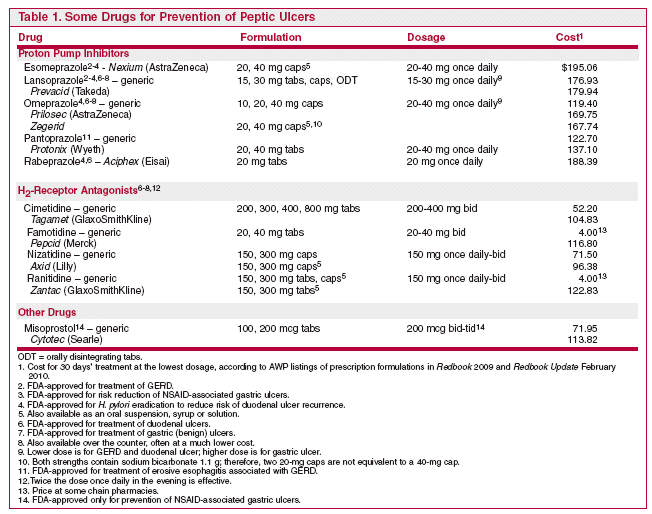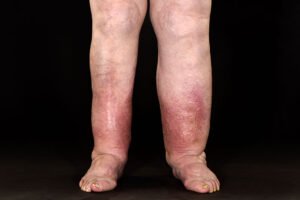NSAIDs and Peptic Ulcer Risk

NSAIDs and Peptic Ulcer Risk: What You Need to Know
Read Time: 9 mins
Peptic ulcers refer to sores that form on the mucosal lining of the stomach, small intestine, or esophagus. If the ulcer is in the stomach, it is known as a gastric ulcer, while those in the upper part of the small intestine (duodenum) are called duodenal ulcers. While the primary cause of peptic ulcers is an infection by Helicobacter pylori (H. pylori), another significant contributor is the use of nonsteroidal anti-inflammatory drugs (NSAIDs) like aspirin, ibuprofen, and naproxen.
How NSAIDs Contribute to Peptic Ulcers
NSAIDs can lead to ulcers by disrupting the stomach’s ability to protect itself from gastric acids. These acids are necessary for digestion, but they can be harmful when the stomach’s protective barriers are compromised. The stomach has three main defenses against gastric acid:
-
Mucus production by foveolar cells, which line the stomach.
-
Bicarbonate production that helps neutralize stomach acid.
-
Blood flow, which aids in repairing and renewing the stomach’s mucosal layer.
NSAIDs interfere with these protective mechanisms by inhibiting prostaglandins, lipid compounds that help maintain the protective mucosal barrier. As a result, without sufficient prostaglandins, the stomach lining becomes more vulnerable, leading to inflammation, ulcers, and in severe cases, bleeding.
Understanding the Symptoms of a Peptic Ulcer
While some individuals with peptic ulcers experience no symptoms, the most common sign is a dull or burning pain in the upper abdomen, typically occurring after meals or during the night. The pain may last anywhere from a few minutes to several hours. Other less common symptoms include bloating, burping, nausea, vomiting, weight loss, and a feeling of fullness after eating even a small meal.
In rare cases, ulcers may cause visible bleeding, resulting in black or bloody stools or vomiting blood. If you experience any of these symptoms, especially blood in your stool or vomit, seek immediate medical attention as it could indicate a serious complication.
Diagnosis of Peptic Ulcers
If you present symptoms of a peptic ulcer, your healthcare provider may conduct several tests to determine the cause. If you are using NSAIDs for long-term pain management, your doctor may suspect that the medications are contributing to your symptoms. Tests to diagnose peptic ulcers include:
-
Upper GI series: A patient drinks a barium solution, followed by a series of X-rays to highlight the digestive tract.
-
Upper endoscopy: A flexible tube with a camera is inserted into the esophagus, stomach, and duodenum to examine the lining and possibly take biopsies for further analysis.
Risk Factors for NSAID-Induced Ulcers
While all NSAIDs can cause indigestion, gastric bleeding, and ulcers, certain individuals are at a higher risk. These include people who:
-
Are over 70 years old
-
Take corticosteroids
-
Have a history of ulcers
-
Use high-dose NSAIDs or take them for extended periods
-
Combine multiple NSAIDs
-
Are infected with H. pylori
-
Take daily aspirin (including low-dose aspirin for heart protection)
-
Use blood thinners
-
Smoke or drink alcohol
It is estimated that up to 25% of long-term NSAID users will develop an ulcer, though only a small percentage will experience severe complications.
Treatment of NSAID-Induced Ulcers
The treatment for NSAID-induced ulcers typically involves stopping the NSAID. Most ulcers heal on their own once the medication is discontinued. However, additional treatments may be necessary to promote healing, manage pain, and prevent recurrence. These may include:
-
Antacids to neutralize stomach acid.
-
Proton pump inhibitors (PPIs), such as omeprazole, to reduce acid production.
-
Bismuth subsalicylate (e.g., Pepto-Bismol) to protect the stomach lining (use only under medical supervision).
-
H2-blockers, which reduce stomach acid by blocking histamine receptors.
-
COX-inhibitors, a class of NSAIDs that may be less likely to cause digestive issues.
In some cases, surgery may be required, especially if there are complications such as severe bleeding, perforation, or obstruction.
Lifestyle Changes for Managing Peptic Ulcers
Certain lifestyle changes can help support ulcer healing and prevent further damage:
-
Avoid foods that irritate the stomach, such as spicy foods or acidic beverages.
-
Limit or avoid caffeine and alcohol, both of which can increase stomach acid.
-
Stop smoking, as it can impair the healing of ulcers and exacerbate symptoms.
When to Seek Professional Help
If you are taking NSAIDs and develop symptoms such as persistent abdominal pain, nausea, or blood in your stool or vomit, contact your healthcare provider immediately. Prompt diagnosis and treatment can prevent complications such as internal bleeding or perforation, which may require emergency care.
Prevention of NSAID-Induced Ulcers
The best way to prevent NSAID-induced ulcers is to minimize the use of these drugs, especially in high doses or for prolonged periods. If you must take NSAIDs regularly, your doctor may recommend protective medications to help shield your stomach lining from the harmful effects of these drugs.
Key Takeaways
-
NSAIDs can lead to peptic ulcers by compromising the stomach’s protective defenses.
-
Long-term or high-dose NSAID use, combined with other risk factors like age and H. pylori infection, increases the likelihood of ulcer development.
-
Early symptoms of peptic ulcers include upper abdominal pain, nausea, and indigestion, while severe cases can lead to bleeding.
-
Treatment typically involves discontinuing NSAIDs and using medications to promote healing and reduce acid.
-
Lifestyle changes, such as avoiding irritant foods and substances, can help manage and prevent ulcers.
By understanding the risks associated with NSAID use and making informed choices about pain management, individuals can significantly reduce the likelihood of developing peptic ulcers and the associated complications.



